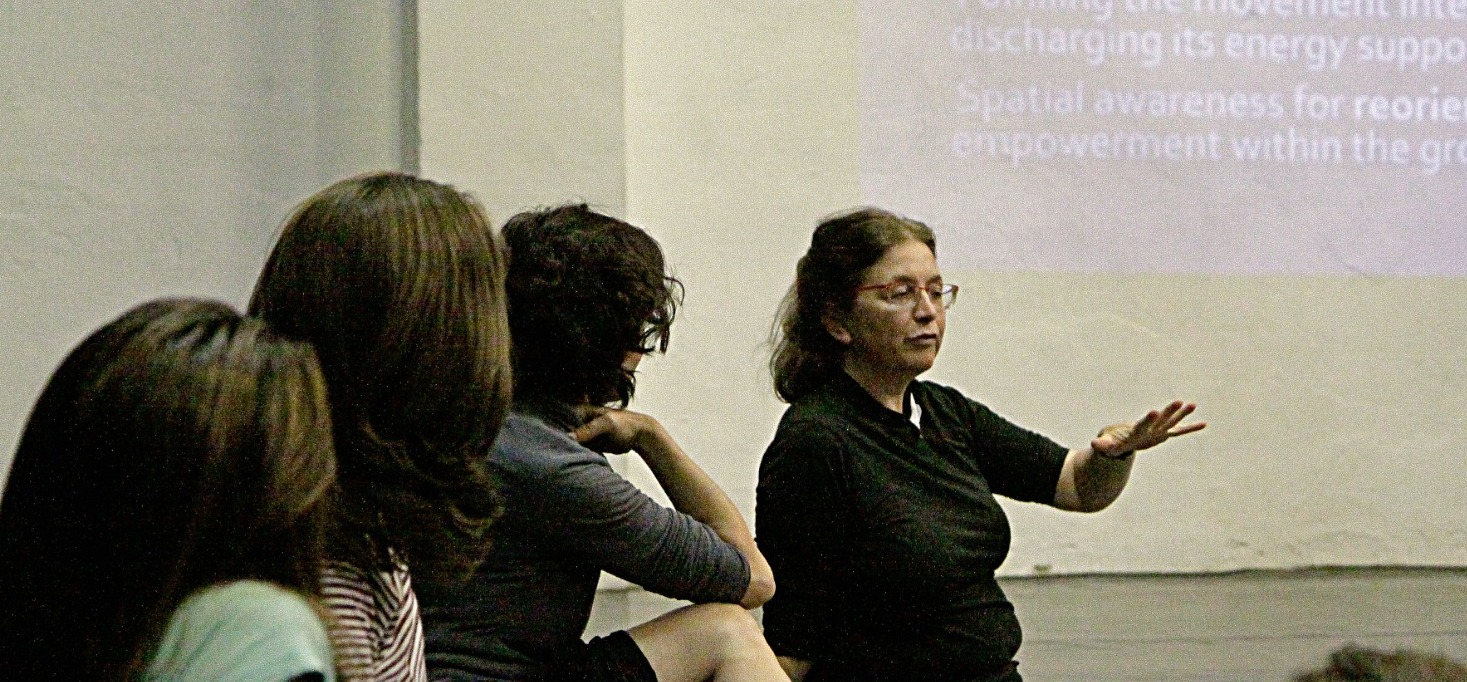Rachelle Palnic Tsachor lecture & workshop
SOMA Festival Praha 2022 - Saturday/Lecture 17:30-18:30, Sunday/Workshop 14:00-15:30
Lecture: Movement-Innate regulator of self, co-regulating together.
Movement
acts as a bio-psycho-social regulator, integrating all our 'systems' balancing
dualities such as exertion and recuperation. Integral thinking considers movement as not just
physical, but also movements of the mind, emotions, and more--Movement is essential
to life.
Our movement not only reflects our emotions, but also influences them. Living/general systems theory reminds us that anatomy is not movement, rather movement is the response of anatomy to fulfill our socio-psycho-biological needs. It not only how the body/mind navigates and interacts with environment but also, with one another.
Kinesthetic
empathy can be described as the experience of being moved by and then moving to support another's experience. Others' emotions are recognized from the briefest
glimpses of whole body movement, which means that changes to our movement can affect the
empathy we experience and arouse in others.
Movement is innately
social, offering a path to co-regulation to affect our
well-being together.
Workshop: Movement-Innate regulator of self, co-regulating together.
A workshop will explore how to use movement to support emotional resiliency for oneself through voluntary choice of one's posture and movements, working with principles from Laban/Bartenieff Movement System to guide gradual change in movement components to somatically support shift in affective state: (A) Introduce new movement components in developmental order; (B) Use LMA affinities-among-components to guide the expansion of expressive movement range and (C) Sequence change among components based on Laban's Space Harmony theory to support the gradual integration of that new range. (Based in Shafir, Tsachor, and Welch 2016; Tsachor and Shafir 2017). Next, we'll explore how matching some aspects of another's movement might lead to empathy. (Based in Melzer, Shafir, and Tsachor 2019).
Rachelle Palnick Tsachor (USA)
Rachelle Palnick Tsachor CMA, RSMT, is Associate Professor of Movement at the University of Illinois at Chicago, where she teaches Somatics, the Laban/Bartenieff Movement System, the Alexander Technique, and Mask Improvisation to actors. At UIC, she also carries out movement research, investigating how movement supports people--ourartistic practices, creativity, emotions, learning, rehabilitation, and resiliency after trauma. Her current projects include a National Science Foundation grant supporting embodied learning in Chicago Public Schools; a Creative Activity Award for Making Inclusive Theatre...Disability Art; a Marion Chace Award to study Associations between Movement and Personality; and a UI grant supporting The Young People's Science Theatre, positioning minoritized students to create and become agents of social-justice.
Rachelle is passionate about training the next generation in Somatic Movement. Senior faculty for The Laban/Bartenieff Institute of Movement Studies (LIMS), she founded LIMS Certification Program in Israel. In her 20 years practicing Somatic Movement Therapy (ISMETA), she developed and coordinated LIMS post-graduate ISMETA training and authored Laban/Bartenieff-based Somatic Movement Therapy... methodology and case studies. Her outreach to the medical world about Somatic Movement led her to certify with the Center for Mind-Body Medicine and co-author the movement chapter in the forthcoming book Integrative Rehabilitation Practice, sharing her clinical experience with physical, occupational, and rehab therapists.
Rachelle intends for the art of movement to inform scientific research. She is co-author of Emotion Regulation Through Movement; A Somatic Movement Approach to Fostering Emotional Resiliency; How Do We Recognize Emotion From Movement?and A Method for Quantifying the Qualitative Aspects of Unscripted Movement. (Frontiers Publications) along with numerous studies in movement therapy. She talks about this in a podcast for the Labanarium discussing a somatic movement approach to actor training.




